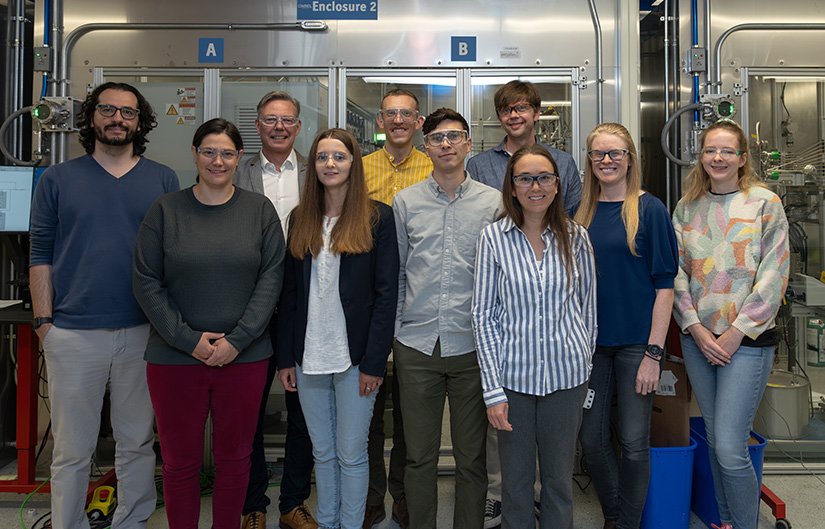Plastics Recycling With Enzymes Takes a Leap Forward
Key Process Improvements Save Energy and Cut Costs for Recycling Polyester With Enzymes

A successful collaboration involving a trio of research institutions has yielded a road map toward an economically viable process for using enzymes to recycle plastics.
The researchers, from NREL, the University of Massachusetts Lowell, and the University of Portsmouth in England, previously partnered on the biological engineering of improved PETase enzymes that can break down polyethylene terephthalate (PET). With its low manufacturing cost and excellent material properties, PET is used extensively in single-use packaging, soda bottles, and textiles.
The new study combines the previous fundamental research with advanced chemical engineering, process development, and techno-economic analysis to lay the blueprints for enzyme-based PET recycling at industrial scale.
While current methods exist for recycling PET, they are often incompatible with typical low-quality plastic waste. A potential solution lies with enzymes, which can selectively break down PET, even from contaminated and colored plastic waste streams. The researchers’ new design focuses on improvements at each stage of the process, from plastic deconstruction with enzymes, to efficient recovery of the resulting building blocks, or monomers. These monomers can be used to make new plastic or upcycled to generate higher value materials, saving energy and resources.
The key to making such a process viable is to reduce the energy and cost requirements, which in turn yields a cheaper product. The team has achieved this by innovations that change the reaction conditions and separations technologies to reduce expensive acid and base additions by more than 99%, reduce annual running costs by 74%, and reduce energy use by 65%.
“Despite the advantages of enzymatic recycling for complex plastic waste streams, the field has encountered multiple challenges for realistic implementation,” said Gregg Beckham, a senior research fellow at NREL and colead of the study. “Here we have taken a multidisciplinary approach that incorporates multiple innovations to realize an economically viable and scalable process.”
The modeled cost of the resulting enzyme-recycled PET are now below those of U.S. domestic virgin PET ($1.51/kg vs. $1.87/kg), making this an attractive option for industry investment and scale-up.
According to a 2022 NREL study, 86% of plastics were landfilled in the United States in 2019—materials with enough embodied energy to supply 5% of the power needs of the U.S. transportation sector. With global plastic production anticipated to increase between two and four times current levels by 2050, recovering and valorizing more postconsumer plastics is an opportunity to recapture that energy for domestic materials manufacturing.
“We see a significant opportunity to design, test, and optimize new recycling technologies to efficiently valorize postconsumer plastics into feedstock for new materials,” said Natasha Murphy, a biochemist at NREL and co-first author of the new paper.
The paper, “Process innovations to enable viable enzymatic poly(ethylene terephthalate) recycling,” appears in the journal Nature Chemical Engineering. Other co-authors from NREL are Stephen Dempsey, Jason DesVeaux, Taylor Uekert, Swarnalatha Mailaram, Manar Alherech, Hannah Alt, Kelsey Ramirez, Brenna Norton-Baker, Elizabeth Bell, Christine Singer, and John McGeehan.
McGeehan, who recently joined NREL from the University of Portsmouth, said, “I am delighted to be part of a team that is dedicated to translate fundamental science toward real-world application and look forward to working closely between NREL and our industry partners to accelerate the design and construction of the first U.S. enzymatic plastic recycling plant.”
Research funds came from the U.S. Department of Energy’s Advanced Materials and Manufacturing Technologies Office and Bioenergy Technologies Office. This work was performed as part of the Bio-Optimized Technologies to keep Thermoplastics out of Landfills and the Environment (BOTTLE) consortium.
Explore NREL bioenergy and bioeconomy research, including recyclable-by-design materials research.
Last Updated May 28, 2025
